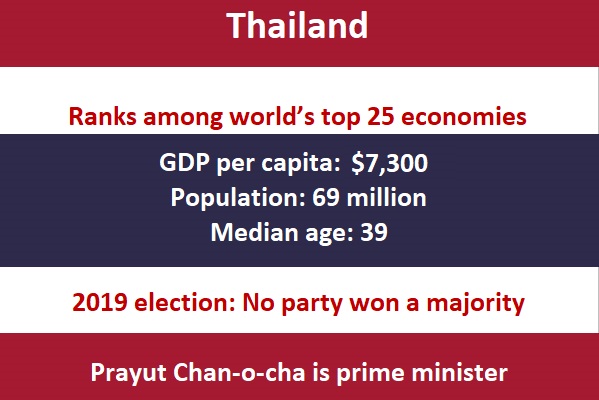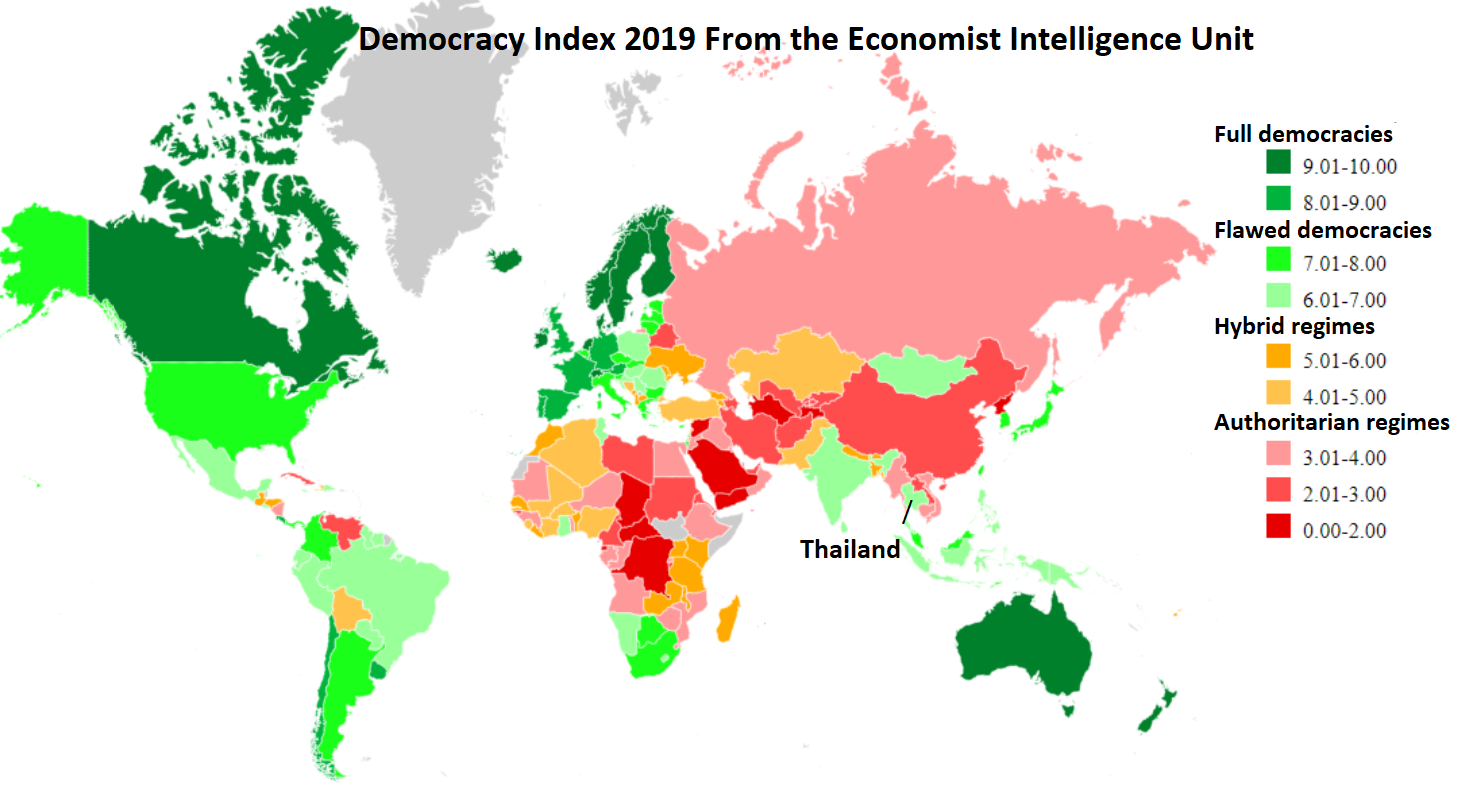Failed Democracy in Thailand: Asia Sentinel
A bloodless coup transformed Thailand’s absolute monarchy into a constitutional system in 1932, yet the country does not enjoy full democracy today. Thailand’s elite do not trust citizens with decision-making, and there is a “reinvention of modern-day authoritarianism in the form of a triumvirate consisting of the military establishment, bureaucratic elite and business conglomerates,” explains Pithaya Pookaman for Asia Sentinel. “The politicians, even those allied with the authoritarian regime, only manage to play a second fiddle in the new political order.” The military has been in power since a 2014 coup. Today’s political order and the aspirations for eliminating oligarchy and incompetence have changed little from those in 1932, and Pookaman explains how the current regime removes artifacts and symbolism related to that revolution. The country held an election in 2019 with no clear winner, and Prayut Chan-o-cha who led the military junta that took charge in 2014 serves as prime minister. Thailand’s struggle is between authoritarian and democratic forces – not between rich and poor, young and old, conservatives and liberals, or urban and rural areas. Support for democracy requires political will and tireless organization. – YaleGlobal
Failed Democracy in Thailand: Asia Sentinel
Thailand’s democratic forces have long battled an authoritarian triumvirate of the military, bureaucrats and big businesses that have a lock on politics
Friday, July 3, 2020
Read the article from Asia Sentinel about democracy in Thailand.
Pithaya Pookaman is a retired Thai ambassador and a regular contributor to Asia Sentinel. He lives in Bangkok.


Asia Sentinel
© 2020 Asia Sentinel